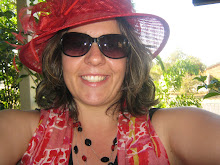"Vygotsky's theories stress the fundamental role of social interaction in the development of cognition...social learning tends to precede (i.e. come before) development" (Simplypsychology, 2010)
Plus
Vygotsky's theories give a solid foundation to work from and shows the importance of student interaction and inclusion. Through understanding this theory it makes it easier to create tasks that are more effective in teaching
Minus
Although inclusion is a good thing it can make it harder for teachers with more students below standard academically and or behaviourally it takes the teachers time away from the remaining class. In order for full inclusion to work it would be beneficial for there to be more support available, be it through teacher aides or trained parent helpers.
Interesting
Zone of Proximal Distance (ZPD) is a great tool that should be fully utilized in teaching and used properly would open up lots of opportunities in the classroom.
It was interesting to find out about Vygotsky's life and struggles he went through, it makes me realise that without the barriers that stopped him being a teacher straight away, he may not have learnt about psychology and completed the other study that helped him to be considered one of the great thinkers of his time. It also showed in the reading how his life and society shaped his thinking, therefore supporting his theory.
Reference List for more information
Clabaugh, G. K. (2010). The Educational Theory of Lev Vygotsky: a multidimensional analysis. Retrieved 3 November, 2010, from http://www.newfoundations.com/GALLERY/Vygotsky.html
Gredler, M. E. (2009). Hiding in Plain Sight: The Stages of Mastery/Self-Regulation in Vygotsky's Cultural-Historical Theory. [Article]. Educational Psychologist, 44(1), 1-19.
Simplypsychology. (2010). Vygotsky's Theory of Social Development. Retrieved 3 November, 2010, from http://www.simplypsychology.pwp.blueyonder.co.uk/vygotsky.html
Vygotsky, L. S. (1926). Educational Psychology. Retrieved 3 November, 2010, from http://www.marxists.org/archive/vygotsky/works/1926/educational-psychology/index.htm

No comments:
Post a Comment